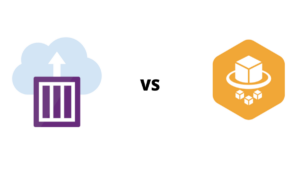AWS Fargate vs. Azure Containers
AWS Fargate and Azure Containers make it easier for developers to focus on building applications instead of managing IT infrastructures. Containers operate as independent runtime environments with their own configurations, libraries, and frameworks. These features make software more dependable because containers do not rely on specific operating systems. Anyone can access and use them regardless…
Read MoreAzure Containers vs Docker: The Differences
In search of an optimal platform for your apps? You’ve probably discovered Azure Container Service and Docker Cloud data centers. While they may seem rival services, they’re indeed synergistic in providing your container-based app. The concept of Azure Containers vs Docker isn’t about competition but complementing each other in app development. Read on to know…
Read MoreHow to Boost IronWorker Monitoring with New Relic?
Did you know that efficient task monitoring can reduce error rates by up to 45%? Unlock this potential by integrating IronWorker with New Relic, a leading observability platform. This blog post offers a concise, step-by-step guide to help you optimize performance, minimize downtime, and maximize ROI. Don’t miss out on these benefits—dive in and explore…
Read MoreIronWorker for Indie Hackers
At Iron.io, we love working with indie hackers who are building and marketing products that solve real-world problems. We understand that as an indie hacker, you may have a lot on your plate, including managing your product development, marketing, and customer support. That’s why we want to help you in every way possible to streamline…
Read MoreProcessing Twilio on Heroku with Iron Worker
Did you know that you can use Twilio to send out all of your emails? But in order to do this, you’ll need to process Twilio jobs with a worker, and Iron Worker is the ideal Heroku Plugin that’ll help you easily plug right into the task at hand. In this article, we’ll be exploring…
Read MoreHow to Run Cron Jobs Every 5, 10, or 15 Minutes
In the dynamic world of software development, repetitive tasks can consume a significant amount of time and hinder productivity. By mastering the art of setting up cron jobs every 5, 10, or 15 minutes, developers can alleviate this pain point and enable themselves to focus on more valuable work. Dive into this comprehensive guide to…
Read MorePros and Cons of Cloud Agnostic
Cloud computing benefits organizations in several ways. More than half of businesses that adopt cloud services say that they experience better security. An impressive 87% of companies say that cloud services accelerate their business processes. Cloud agnostic has become a popular option for companies that want more flexibility, scalability, and cost controls. Cloud agnostic can also…
Read More

